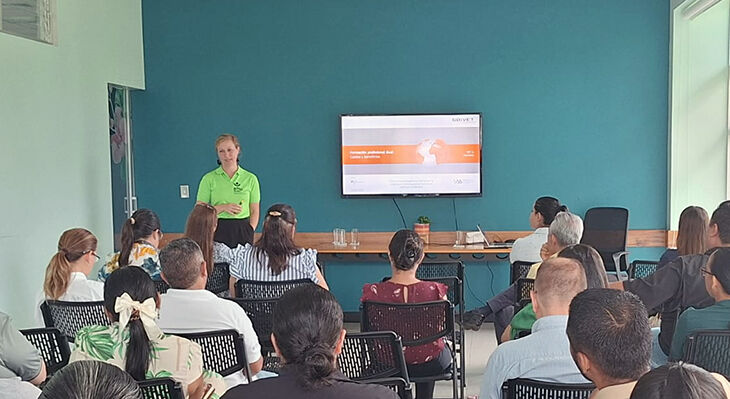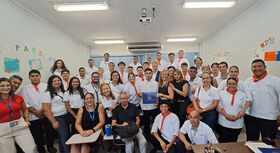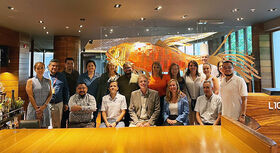“Without companies, there's no vocational training in the dual system!”
The title of this article has become a guiding principle for dual VET in Costa Rica and a core topic in the bilateral cooperation. It has led to a joint series of events in Costa Rica specifically aimed at informing companies about dual vocational education and training. GOVET was also in attendance.

For almost two and a half years now, the Costa Rican vocational education and training system has also been providing the option of dual VET. To begin with, the offer mainly covered industrial maintenance, electronics, and web design. Now, together with educational institutions of the Ministry of Education (Ministerio de Educación Pública, MEP) and the National Education Institute (Instituto Nacional de Aprendizaje, INA), companies are able to offer over twenty training programmes at the different levels of the national qualification framework.
GOVET has been advising the working group of the Vocational Education and Training Commission CAP (Comisión Asesora y Promotora de la EFTP Dual) since it was founded four years ago. The biggest challenge in the current phase is in attracting further companies who want to be involved in dual vocational education and training.

And this requires targeted advisory work to address any doubts on the part of companies. This is needed because vocational training in the dual system is an entirely new and unknown area for companies, that means extra work initially and also introduces uncertainty. The need for investment is also a barrier for companies:
- Companies have to release trainers for the trainer aptitude courses.
- Depending on the size of the companies, they have to make a scholarship fund payment of around €250 per month per trainee.
- Companies also have to take out insurance to cover occupational health and safety risks at a cost of around €30 per year.
To provide a networking platform for companies which are interested, GOVET and the Vocational Education and Training Commission organised a series of events in the cities of Santa Cruz, Liberia, La Fortuna, and San José. In total, over one hundred participants from business and education came together to find out about vocational training in the dual system in Costa Rica. GOVET's Julia Olesen compared the costs and benefits of dual training based on German experience and showed how companies benefit from vocational training in the dual system over the long term.

More than forty companies are now involved in vocational training in the dual system in Costa Rica – and they are fully on board. One example of a very impressive experience has been the WestIn Reserva Conchal Hotel, a luxury resort on the Pacific coast. Here, they have been providing vocational training in the dual system for over ten years, and for two years have been doing so in line with Costa Rica's dual training legislation. A corporate culture of dual education and training has developed at the hotel, with a large number of graduates from previous generations still working there and now training the new skilled workers. In the view of the management and of Gabriela Meza, head of corporate communications and sustainability, dual VET is a real success factor:
We started by introducing the training at WestIn Reserva Conchal as a measure in the area of corporate social responsibility, however, over the years it has become part of our corporate culture and is now an integral part of our staff recruitment strategy.
Gabriele Meza, WestIn Reserva Conchal Hotel
SMC Ltd, based in the Coyol free trade zone, also confirmed that they would certainly be taking on trainees again next year. Other companies, such as the baked goods manufacturer Pozuelo, have already welcomed multiple groups of trainees.
The growing number of companies and the positive feedback shows that vocational training in the dual system is increasingly gaining acceptance in Costa Rica as a model for ensuring the supply of skilled workers and also for supporting sustainable corporate development.